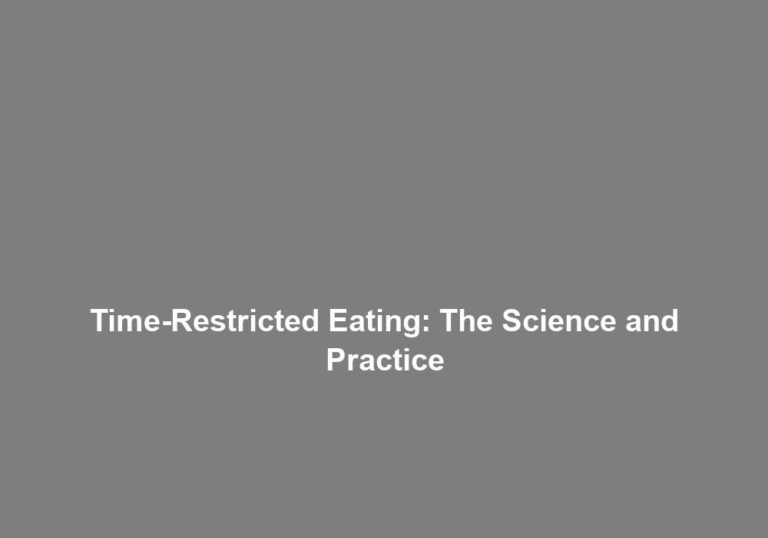Micronutrients: The Invisible Diet Enhancers
Do you ever feel like thereG??s something missing from your diet, even when youG??re eating all the right things? You might be overlooking the power of micronutrients. While macronutrients like protein, carbohydrates, and fats often take the spotlight, micronutrients play a crucial role in enhancing your overall health and well-being. But how exactly do these invisible diet enhancers work, and why are they so important? LetG??s uncover the mystery behind micronutrients and their impact on your diet and health.
Understanding Micronutrients
To maintain a healthy diet, you need to understand the role of micronutrients in your overall well-being. Micronutrients, including vitamins and minerals, play a crucial role in various bodily functions. Understanding how these micronutrients are absorbed and their biochemistry is essential for ensuring that your body gets the necessary nutrients it needs to function optimally.
Micronutrient absorption occurs mainly in the small intestine. For instance, the absorption of iron and calcium is influenced by factors such as the presence of other dietary components and the bodyG??s current need for these nutrients. Similarly, fat-soluble vitamins like A, D, E, and K require the presence of dietary fats for optimal absorption. Knowing how these processes work can help you make informed dietary choices to maximize the absorption of micronutrients.
Micronutrient biochemistry delves into the intricate mechanisms by which vitamins and minerals function in the body. For example, vitamin C acts as an antioxidant, protecting cells from damage caused by free radicals. Meanwhile, minerals like zinc play a role in enzyme function and immune system support. Understanding the biochemistry of micronutrients can provide insight into how these compounds work in your body, empowering you to make dietary decisions that support your overall well-being.
The Role of Vitamins
Now, letG??s talk about the role of vitamins in your diet. YouG??ll learn about the functions of different vitamins, where to find them, and what happens when you donG??t get enough. Understanding these points will help you make informed choices about your diet and overall health.
Vitamin Functions
Understanding the essential role that vitamins play in supporting overall health is crucial for maintaining a balanced diet. Vitamins are vital for various bodily functions, including metabolism, immune system support, and energy production. They also play a crucial role in the absorption of other nutrients, such as minerals and antioxidants, and are involved in numerous nutrient interactions within the body. For example, vitamin C enhances the absorption of non-heme iron from plant-based foods, while vitamin D facilitates the absorption of calcium. Additionally, certain vitamins act as antioxidants, protecting cells from damage caused by free radicals. ItG??s important to ensure you consume a variety of vitamin-rich foods to support these functions and maintain optimal health. Remember, vitamins work synergistically with other nutrients to keep your body functioning at its best.
Vitamin Sources
Ensure a balanced diet by incorporating a variety of vitamin-rich foods to support your bodyG??s essential functions and maintain optimal health. Here are some sources of essential vitamins to consider:
-
Fruits and Vegetables
-
Citrus fruits, strawberries, kiwi, and bell peppers are rich in vitamin C.
-
Carrots, sweet potatoes, and dark leafy greens provide ample vitamin A.
-
Other Vitamin Sources
-
Incorporate dairy products, eggs, and fortified cereals for vitamin D and calcium.
-
Include nuts, seeds, and whole grains for vitamin E and B vitamins.
To further enhance your diet, explore nutrient-rich recipes and consider dietary supplements to ensure youG??re meeting your vitamin needs. By diversifying your food choices, you can easily obtain the essential vitamins your body requires for overall well-being.
Vitamin Deficiencies
Exploring the role of vitamins in preventing deficiencies can significantly impact your overall health and well-being. Vitamin deficiencies can lead to various health consequences, such as fatigue, weakened immune function, and impaired cognitive abilities. To avoid these issues, itG??s essential to ensure that your diet includes an adequate amount of vitamins. Dietary recommendations suggest consuming a variety of fruits, vegetables, whole grains, lean proteins, and dairy to obtain the necessary vitamins. For example, vitamin C can be found in citrus fruits, bell peppers, and strawberries, while vitamin D can be obtained from sunlight exposure and fortified foods like milk and cereals. By following these dietary recommendations and ensuring you get the right amount of vitamins, you can protect yourself from potential health consequences associated with deficiencies, ultimately promoting your overall well-being.
Importance of Minerals
Minerals play a crucial role in maintaining the overall health and function of your body. They are essential for various bodily functions, including bone health, muscle function, and hormone regulation. HereG??s why minerals are so important for your overall well-being:
- Mineral Absorption: Your body needs to absorb minerals from the foods you eat in order to utilize them effectively. Certain factors, such as the presence of other nutrients or the form of the mineral, can affect how well your body absorbs these essential nutrients.
- Mineral Bioavailability: This refers to the extent and rate at which minerals are absorbed and utilized by the body. Factors such as the presence of phytates, oxalates, and fiber in food can affect the bioavailability of minerals. For instance, the bioavailability of iron from plant-based sources is lower compared to that from animal-based sources.
Ensuring adequate mineral intake through a balanced diet is crucial for supporting your overall health. By consuming a variety of nutrient-dense foods, you can optimize your mineral absorption and bioavailability, promoting better health and well-being. Additionally, understanding the factors that influence mineral bioavailability can help you make informed dietary choices to ensure youG??re getting the most out of the minerals you consume. Remember, your body relies on these essential nutrients to function optimally, so make sure to prioritize your mineral intake for better overall health.
Micronutrient-Rich Foods
To enhance your diet and ensure proper nutrition, incorporating micronutrient-rich foods is essential for promoting overall health and well-being. Nutrient-dense foods are a vital component of a balanced diet, providing essential vitamins and minerals that support various bodily functions. By prioritizing these foods, you can optimize your nutrient intake and contribute to your overall wellness.
Below is a table highlighting some common micronutrient-rich foods that you can easily incorporate into your daily meals:
| Nutrient-Rich Foods | Nutrients | Benefits |
|---|---|---|
| Spinach | Iron, Vitamin K, Vitamin A, Folate | Supports healthy blood and immune function |
| Salmon | Omega-3 fatty acids, Vitamin D | Promotes heart and brain health |
| Almonds | Vitamin E, Magnesium | Supports skin health and energy production |
| Sweet Potatoes | Vitamin A, Vitamin C, Potassium | Supports vision and immune function |
| Greek Yogurt | Protein, Calcium, Probiotics | Supports bone health and gut microbiome |
Incorporating these nutrient-dense foods into your diet can help ensure that you are obtaining a wide range of essential vitamins and minerals. By focusing on nutrient density, you can optimize your nutrient intake without consuming excess calories. Remember, a balanced diet rich in micronutrients is key to maintaining overall health and well-being.
Absorption and Bioavailability
Understanding how your body absorbs and utilizes the nutrients from the foods you consume is essential for maximizing their benefits and promoting overall health. Nutrient absorption refers to the process by which nutrients are taken into the bloodstream after digestion, while dietary bioavailability refers to the proportion of nutrients that are absorbed and utilized by the body. HereG??s what you need to know about these crucial aspects of nutrition:
-
Factors Affecting Nutrient Absorption:
-
Digestive Health: A healthy digestive system is vital for optimal nutrient absorption. Conditions like celiac disease or inflammatory bowel disease can impair absorption.
-
Nutrient Interactions: Some nutrients enhance or inhibit the absorption of others. For example, vitamin C can enhance the absorption of non-heme iron from plant-based foods.
-
Improving Dietary Bioavailability:
-
Food Pairing: Pairing certain foods can enhance the bioavailability of nutrients. For instance, consuming foods rich in vitamin C alongside iron-rich foods can improve the bodyG??s absorption of iron.
-
Cooking Methods: Some cooking methods can increase the bioavailability of nutrients. For example, lightly cooking tomatoes can boost the absorption of lycopene, a powerful antioxidant.
Micronutrient Deficiencies
You might be surprised to learn that micronutrient deficiencies can have a significant impact on your overall health and well-being. The lack of essential vitamins and minerals in your diet can lead to various health issues, affecting your energy levels, immunity, and even mental clarity. Common micronutrient deficiencies include iron, vitamin D, vitamin B12, and iodine, among others. These deficiencies can arise due to inadequate intake from food, poor absorption, or increased demand, such as during pregnancy or illness.
Micronutrient deficiencies can manifest in different ways. For instance, iron deficiency may lead to anemia, causing fatigue and weakness. A lack of vitamin D can result in weakened bones and increased susceptibility to infections. Vitamin B12 deficiency can cause neurological symptoms like tingling in the hands and feet, and iodine deficiency can lead to thyroid problems. These health impacts highlight the importance of maintaining adequate levels of micronutrients in your body.
Prevention strategies for micronutrient deficiencies involve consuming a well-balanced diet that includes a variety of nutrient-dense foods. Additionally, for certain micronutrients, supplementation may be necessary, especially for individuals with specific dietary restrictions or increased needs. ItG??s essential to be mindful of your bodyG??s requirements and to seek professional advice if you suspect a deficiency. By prioritizing a diverse and nutritious diet, you can effectively safeguard yourself against micronutrient deficiencies and their potential health impacts.
Conclusion
You may not see them, but micronutrients are the unsung heroes of your diet. Vitamins and minerals play a crucial role in keeping your body healthy and functioning at its best. From the colorful fruits and vegetables to the fortified grains and dairy products, micronutrient-rich foods are all around you, ready to boost your well-being. So, next time you reach for a snack, remember the invisible diet enhancers that are working hard behind the scenes.







